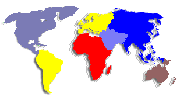|
|
||||
 |
||||
 |
||||
|
“America’s Suicidal Statecraft”: Short Description “Civilisations die from suicide,” Toynbee warned us, “not by murder.”
The United States, along with Australia and several other countries, have pursued fatally flawed economic and financial policies for almost four decades, beginning with ill-judged interest-rate hikes and stagflation in the late 1960s and early 1970s. They then punctuated the years afterwards with policy departures which, almost without exception, made things worse. In effect, they embarked on serial attempts at economic, social, political and strategic suicide through often obsessive devotion to such concepts as “free” markets, deregulation, privatisation and globalisation. They neglected mounting dangers from debt, deficits and derivatives, from rampant consumerism and speculation, chronic unemployment, low wages and mounting inequality at home and abroad. Long years of unmitigated error have reduced a once magnificent American economy to one that increasingly resembles a hollowed-out shell. Though there continue to be great potential strengths in the American economy and society, these strengths have already been gravely diminished and the unremitting ebb of intrinsic power persists while other economies grow stronger, ironically by grasping the opportunities that feckless American policies continue to surrender to them. Perversely, predatory finance capitalism has nourished and become a victim of the prey that, with exquisite cleverness, it sought to capture and exploit. This erosion of economic and financial strength has grave social, political and strategic consequences. Not so long ago, the United States was, despite some inevitable imperfections, one of the world's most admired, progressive and transparent democracies. That democracy has been increasingly corrupted over the years and America's capacity to carry out its role as a superpower - certainly as the world's single superpower – has been put gravely at risk. These are some of the major issues addressed in “America’s Suicidal Statecraft”. Basically, they are down-to-earth economic and financial issues but they have had and continue to have the most far-reaching social, political and strategic impacts - for the United States, for closely allied countries such as Britain, Australia, Canada and New Zealand and, indeed, for the whole world community. There are still ways in which the decline and prospective fall of the United States can be reversed; but that will call for an enormous exercise of political will and, above all, a comprehensive change of vision. At the moment, given the many complexities and uncertainties in the world economic, social, political and strategic situation, the most likely outcome is that American policies will be reversed and a new vision adopted only as irresistible imperatives when a devastating collapse has already occurred or is transparently under way. A crucial question is how many months or years we have left before we reach this point of collapse and just what we can do that will be effective in the meantime. “America’s Suicidal Statecraft” suggests some approaches.
Preface xiii
Annex, Notes, Selected Bibliography, Index
Dr James Cumes is a former Australian Ambassador whose perspectives go back to boyhood in the Great Depression and active service in World War Two. After studying economics at Queensland and Canberra universities, he took his doctorate at the London School of Economics and Political Science (LSE) for his work on “Foreign Economic Policy.” He foretold and diagnosed the “stagflation” of the 1970s in his books “The Indigent Rich” (1971) and “Inflation” (1974); and, in his later writings, was unique in explaining how domestic inflation shifted to external trade and payments, especially from the 1980s onwards, a shift that created the Asian Tigers and enabled the resurgence of the giant economies of China and India. Always a critic of mainstream interest-rate and credit policies, he shows in “America’s Suicidal Statecraft” how the United States fecklessly drained away its economic strength and endangered its political and strategic position as the world’s single superpower. Dr Cumes has written a dozen books on economics, history, government and human behaviour, and four novels, including “Haverleigh” based on his experiences as a teenage soldier in World War Two and later. Post-war, he held senior positions in Australia’s Foreign Office and diplomatic service. After postings in Paris and London, he was Chargé d'Affaires Bonn; Head of the Australian Military Mission, Berlin; Chargé d’Affaires Brussels; High Commissioner to Nigeria and visiting Ambassador to West African countries from Sierra Leone to the Congo; Ambassador to the European Union and several individual European countries; Permanent Representative to the United Nations Vienna and UNIDO; Governor on the Board of IAEA; Australian representative at numerous United Nations and other major conferences around the world. He is married to Heide Schulte von Bäuminghaus, they have a daughter, Kim Alexandra Sarah and homes in Australia, Vienna, Monaco and Cannes.
|
||||
